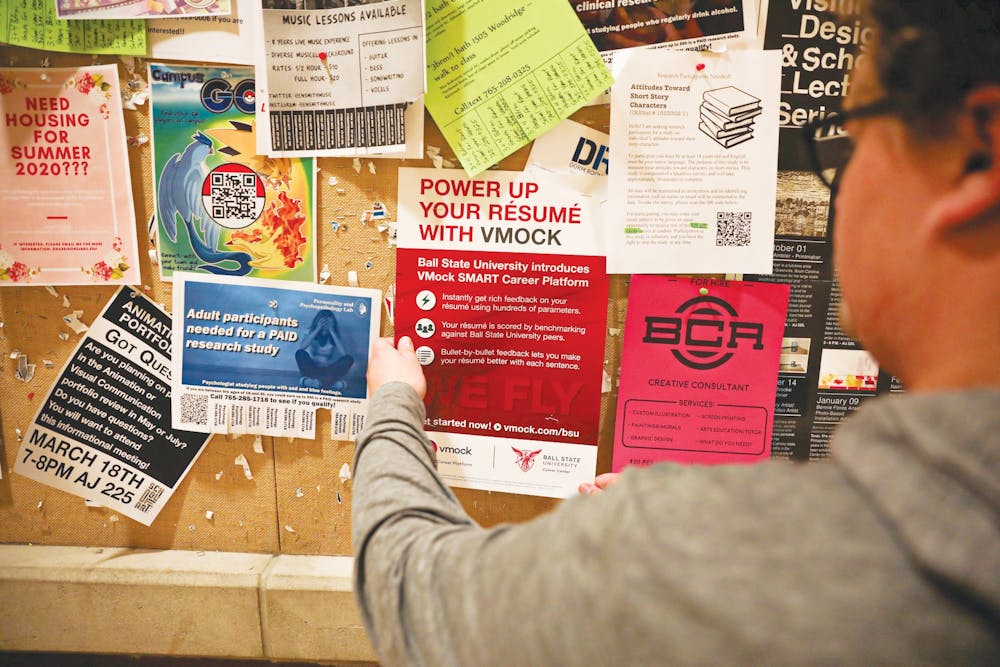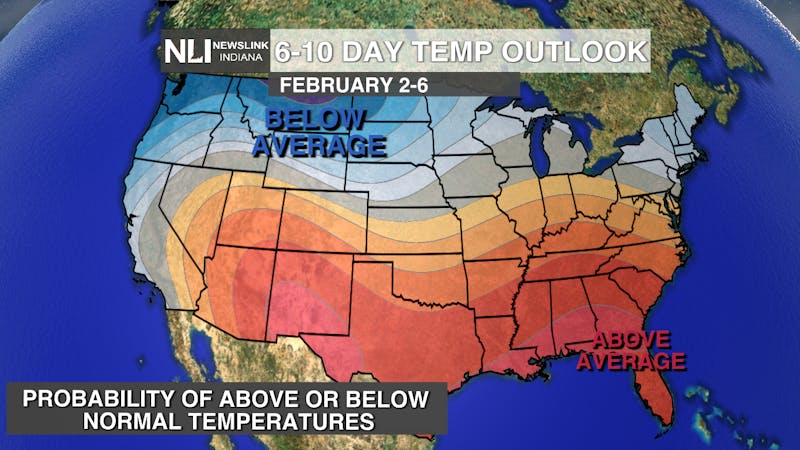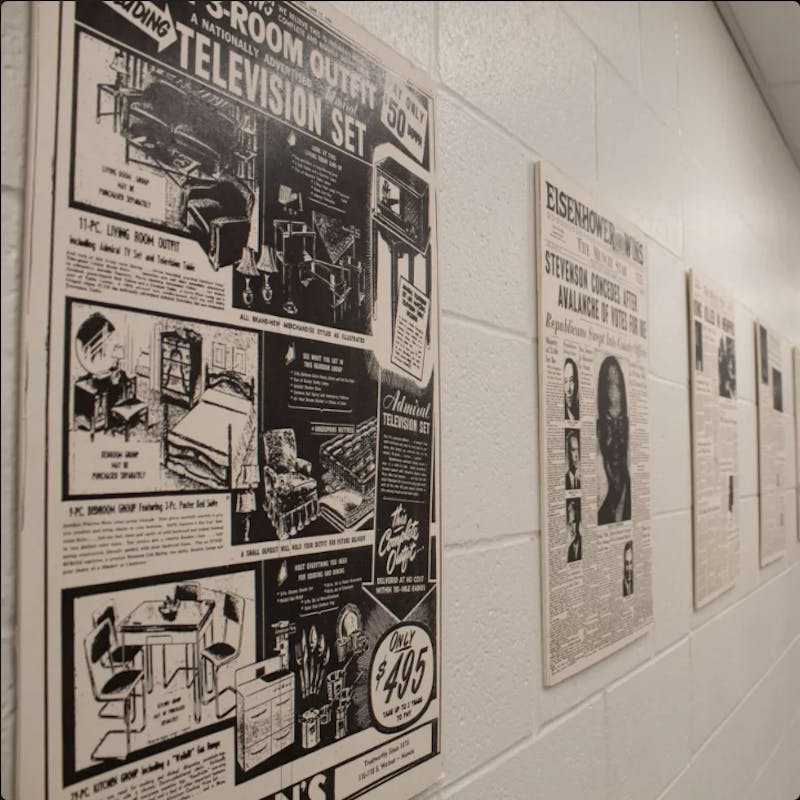As more companies and organizations become reliant on artificial intelligence (AI) technology, its usage can also be seen when students apply for jobs.
Many employers now use applicant-tracking systems to manage applicant resumes, said Jim McAtee, assistant vice president and executive director for career and professional development at Ball State.
“There are certain keywords and phrases employers are looking for depending on job description that will help students move to the next level of actually talking to a human in the application process,” McAtee said.
This semester, he said, the Cardinal Career Center implemented a new resume-evaluation tool — VMock — an artificial intelligence tool that can provide feedback on student resumes to help them meet industry standards.
“VMock uses resumes and employer feedback to be able to construct parameters for what employers are seeking in resumes,” he said. “It helps lead a student down the path with the feedback it provides to help students create resumes that reflect their skills but also will pass through these applicant-tracking systems to get jobs.”
When VMock evaluates a resume, it gives the resume a score out of 100 points based on three criteria — impact, presentation and competencies. It then provides tips to help improve a student’s score, like using more action verbs, including extracurricular activities and mentioning activities that reflect one’s leadership, communication and teamwork skills.
Kyndra Haggard, career coach and senior assistant director at the Career Center, said in addition to keywords, VMock looks for design aspects, such as equal spacing between lines. All of the feedback, she said, is based on the score and areas where students need most improvement.
VMock benchmarks a Ball State student’s score against other students from the university. After achieving a benchmark score of 60, Haggard said, students are then advised to meet with a career coach to polish their resumes.
“Students that have generally spent more time on their resume may start out at a higher score, and that will help them focus on specific areas,” Haggard said. “Students that are just starting a resume for the first time — it will guide them toward items that are going to help them get their resume to that next step.”
Haggard said the program is helpful to career coaches like her because it allows them to discuss how to take the resume to the next level during coaching appointments instead of spending time on the basics of how to build a resume.
“The nice thing about VMock is it’s really helping students put the basics on paper,” she said. “So, let’s start with making sure [to include] contact information, education and we’ve started going through our experiences. So, once you have that groundwork, it makes it much easier to be more impactful in a career coaching appointment so they can really work on content and elaborate on the bullet points.”
Both Haggard and McAtee said the Career Center has obtained positive feedback from students regarding the use of this resume-evaluation program.
“The students that I’ve worked with have seen a growth in their resume,” Haggard said. “I think students are recognizing that there is time and effort that needs to go into working with your resume.”
McAtee said the career center learned about VMock from a vendor at a conference attended by representatives from the Career Center.
Apart from Ball State, more than a hundred universities around the world and in Indiana, like Purdue University and Indiana University, also utilize this program for their career coaching services.
“It just seemed like such a great tool for students that we just had to get it for them,” McAtee said. “It’s cutting edge and will help our students stand out.”
Contact Hannah Gunnell with comments at hrgunnell@bsu.edu or on Twitter @hagunnellNEWS.





The Daily News welcomes thoughtful discussion on all of our stories, but please keep comments civil and on-topic. Read our full guidelines here.